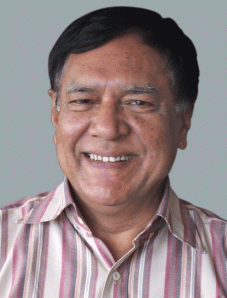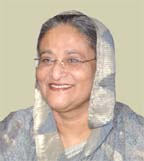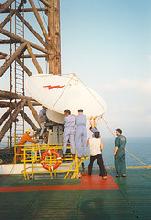Mollah Amzad Hossain
 Production Sharing Contract for exploration of petroleum in the Bay of Bengal is being expeditiously concluded targeting commencement of exploration in the ensuing winter corridor. Professor Dr Hussain Monsur said this while talking to Energy & Power.
Production Sharing Contract for exploration of petroleum in the Bay of Bengal is being expeditiously concluded targeting commencement of exploration in the ensuing winter corridor. Professor Dr Hussain Monsur said this while talking to Energy & Power.
He has just joined as Chairman of Petrobangla for a second term. He earlier served as Chairman of the country’s gas & oil corporation during the last term of Awami League government
Following are the excerpts of the discussion between Dr Hussain Monsur and EP Editor Mollah Amzad Hossain.
EP: What are your main challenges in your second term as Chairman Petrobangla?
HM: Gas crisis was not such acute when I took the assignment last term. We have to enhance production of gas expeditiously to meet the increased demand of fuel for energy generation. Increasing gas production to required level is our primary challenge now. Discovering, developing new gas resources and increasing production from under production gas fields are also major challenges.
EP: Country is passing through acute gas crisis. All new gas connection remains suspended. What are your plans to confront this crisis?
HM: The essential first step here is to increase reserve of gas. Petrobangla has already initiated actions for this. A part of these actions are already underway by state owned exploration company BAPEX, to explore new prospects identified in seismic surveys. Moreover, action is also underway to conduct 3D seismic survey in major gas fields under production for further enhancement of production.
Workover is underway on some underproduction wells. Actions have also been taken to encourage IOCs to expedite exploration in their allotted blocks. Moreover, Petrobangla has initiated actions to explore possibility of LNG import. If successful, this can meet the partial requirement of national gas demand apart from confronting the gas crisis of Chittagong area.
The present gas crisis has not been created overnight. The caretaker government or four-party alliance government virtually did not take any initiative for exploration in frontier areas. Present government has taken short term contingency plan to the confront the crisis, and mid term and long term plans to create a comfortable surplus. Petrobangla is now working to implement the plan.
EP: What are your views on some government decisions like allowing Chevron additional areas adjacent to Jalalabad gas fields for exploration, works of Muchai pipeline compressor station and allowing Cairn the option to sale its share of profit gas after discovery and development of Magnama and Hatiya gas fields?
HM: At this stage it is not proper to give opinion on these matters. These decisions were taken before I took over. As Petrobangla Chairman it is my responsibility now to implement government decisions.
EP: OGPC has raised and issue that PSC for exploration is being concluded to export gas. What are your views about it? You have also worked with them in the name of protection of gas, oil and port at some stage in the past.
HM: I have never worked for OGPC, I was rather associated with Citizen Committee. For this I participated in various programs and raised our genuine and reasonable concerns as an energy expert. You must realize that every citizen has democratic right to oppose signing any contract on issues of national interest. Again, government on the basis of peoples mandate has also right to take decisions protecting the national interest and sign agreements.
I do always believe that unelected interim government must not take such decisions. But that does not mean that even elected government can not take decisions. There is no point disputing decisions of the government having overwhelming peoples mandate to take such decisions. On the other hand, OGPC through misinterpretations has embarrassed the government. Its claim of export provision of gas from probable discovery in offshore exploration has no basis. Rather the PSC has adequate safeguard to make gas available for domestic use. Companies would construct pipelines from offshore platform to onshore custody transfer metering facilities.
Certain quarter is deliberately misguiding the nation through false propaganda and baseless allegations. They are barricading development of national energy resources when nation is suffering from acute gas crisis. Only those persons are patriots who can talk sensibly for the greater national interest refraining from false ill motivated propaganda to gain short term political mileage.
EP: How far has Petrobangla progressed in PSC negotiations with two IOCs– Conocco Philips and Tullow for off-shore blocks in the Bay of Bengal? How long do you think it will take to conclude the PSCs?
HM: Petrobangla has already concluded the first round of discussions. It is an ongoing process. We hope to conclude it expeditiously. Our target is to initiate exploration activities during the ensuing winter corridor.
EP: OGPC has declared that they will call for “hartal” and “gherao” as soon as PSC is concluded? How do you look at it?
HM: Those who are agitating on the streets do not have a clear idea about PSC. Everything is being done in a very transparent process following good international examples and protecting national interest. We hope that the democratic government can confront and contain them politically if they still do not come to senses, and continue to misguide nations.
EP: What are your visions with BAPEX? How you are planning to strengthen it financially and technically?
HM: Strengthening BAPEX has become a slogan of many. But we do not like to confine it to mere slogan rather we like to act and prove its competence. The government has already allocated special funds for BAPEX. Necessary funds from ADP has also been released. BAPEX is now much more active than any time before, and strongly advancing its assigned tasks.
EP: Valuable gas of Titas field is being wasted through seepage. Operation of the gas field is being endangered for failure to stop this leakage. This situation must be remedied. What are you thinking about it?
HM: Titas is an old and major gas field. Gas seepage and present risky operation of the field is really alarming. Much of the seepage has been mitigated following the successful killing of well no 3. Actions to stop seepage completely are underway. We hope to complete them soon.
EP: Petrobangla owns two active mines. One of it is a granite mine. That mining company is getting sick as effective actions to market hard rocks could not be done. What are your plans to overcome this?
HM: Madhyapara Granite Mine is one of the two mining projects those were taken up during BNP regime in 1990s without considering their technical feasibility or commercial viability. This is still a loosing initiative. Although it is a granite mine, the hard rock due its sub-standard quality can not be used as tiles. It is now being used as construction material only. Entire project must be reassessed, and based on the findings appropriate actions to make it viable could be undertaken.
EP: There is some controversy about Barapukuria Coal mine. Mine subsidence has made living of 2500 affected people very risky. What are you doing to relocate and rehabilitate them? What is the actual situation? Are you going to go for further mining by open pit method?
HM: Barapukuria is another mining project which was undertaken by BNP regime of 1990 without following the recommendations of a detail feasibility study. All kinds of problems that can happen in an unplanned underground mine have been encountered here concurrently. High Temperature, poor ventilation, gas formation, water flooding have made economic and safe underground mining a very risky operation. Soft silty water bound overburden and strong active aquifer above multilayer thick coal strata’s have initiated inevitable mine subsidence. Still mining continues in challenging circumstances.
The mining of the present phase is expected to be completed by 2011. Plans and actions for mining of other phases beyond 2011 have not been done yet. From what I have been leant, mining in future following the present long wall underground method will not be feasible. The local inhabitants affected by mine subsidence have already been compensated. The government is also acting positively to rehabilitate them. The government also organised brain storming of local mining professionals and policy makers with NRB mining professionals in June 2009 where among others mining at Barapukuria also came up for discussion. Barapukuria coal mining will never become profitable if mining continues in the present inappropriate long wall underground mining method.
EP: What Petrobangla is going to do with Dighipara Coal Mine?
HM: Petrobangla has obtained license to develop this mine from BMD. Utilising own fund Petrobangla will soon carry out feasibility study of the mine.
EP: What are your views about Phulbari Coal Mine?
HM: A foreign company has a contract with government for Phulbari mining .That company has also submitted Scheme of Development to the government. It is under government’s consideration for approval. It will not be proper for me as Petrobangla Chairman to give opinion on it. EMRD will take decision on it.
EP: Do you think coal policy is essential for coal sector development? If so what suggestions you like to give to Government to approve it?
HM: Look I do not believe that a Coal Policy is essential for coal sector development. It is very much possible to take any decision on coal mining by following the National Energy Policy, other existing acts and policies. We have no more time to waste waiting for formulation and approval of a Coal Policy.
EP: What actions you like to suggest for human resource development of the entire energy sector?
HM: Country is now passing through acute total energy crisis. Co-ordinated efforts of all segments and groups in the energy value chain are essential to confront crisis and overcome it. Mono fuel dependence for power generation must change. Coal must be extracted expeditiously for power generation. As a geologist I have strong conviction that open pit mining is much more technically and technologically appropriate in Bangladesh situation for economic mining. But decisions must be taken for every mine taking into consideration the required safe guards for social and environmental impacts. Natural gas alone can not meet all energy needs.
EP: During your last term as Chairman Petrobangla you took initiative to recover TK 3600 Crore as compensation from UNOCAL for blow out during exploration at Magurchara. Are you planning to realise this now?
MH: That claim was based on report of enquiry committee and the Parliamentary Committee of that period. This is an action of the Government. Petrobangla will follow Government decision.
EP: Resolution of NIKO dispute and further development of Feni Gas field is a long outstanding issue. Are you taking initiative to resolve it?
HM: You are aware that Feni gas field is strategically located to deliver additional gas to gas starved Chittagong region. But further development of Feni depends of legal remedy. Petrobangla has taken initiative to resolve it as soon as possible.
Source: http://www.ep-bd.com/news.php?id=400
Date: 01 November 2009, Bangladesh
 Prime Minister Sheikh Hasina has asked the energy division to further review the draft coal policy, especially of the possible impact of mining on the people and environment. The energy officials at a meeting with the PM recommended open-pit mining of the north side of the Barapukuria coalfield in Dinajpur, but Hasina said that she would not make any hurried decision on open-pit mining, said sources present at the meeting.
Prime Minister Sheikh Hasina has asked the energy division to further review the draft coal policy, especially of the possible impact of mining on the people and environment. The energy officials at a meeting with the PM recommended open-pit mining of the north side of the Barapukuria coalfield in Dinajpur, but Hasina said that she would not make any hurried decision on open-pit mining, said sources present at the meeting. Production Sharing Contract for exploration of petroleum in the Bay of Bengal is being expeditiously concluded targeting commencement of exploration in the ensuing winter corridor. Professor Dr Hussain Monsur said this while talking to Energy & Power.
Production Sharing Contract for exploration of petroleum in the Bay of Bengal is being expeditiously concluded targeting commencement of exploration in the ensuing winter corridor. Professor Dr Hussain Monsur said this while talking to Energy & Power. Dr. Hussein Mansur was made Chairman Petrobangla for few months at the last stage of Awami League Government of the last term. He is known as Awami League leaning intellectual. He was involved in the preparation of Awami League Election Pledges and was reportedly lobbying for the position since formation of Mahajote Government. He has good links with the highest level of the Bangladesh government. One hopes that he uses his links effectively to salvage Gas and Coal based energy sector from the brink of collapse. Mahajote Government has definite plan with him as it relied on him to deliver at this very critical stage of energy security.
Dr. Hussein Mansur was made Chairman Petrobangla for few months at the last stage of Awami League Government of the last term. He is known as Awami League leaning intellectual. He was involved in the preparation of Awami League Election Pledges and was reportedly lobbying for the position since formation of Mahajote Government. He has good links with the highest level of the Bangladesh government. One hopes that he uses his links effectively to salvage Gas and Coal based energy sector from the brink of collapse. Mahajote Government has definite plan with him as it relied on him to deliver at this very critical stage of energy security.